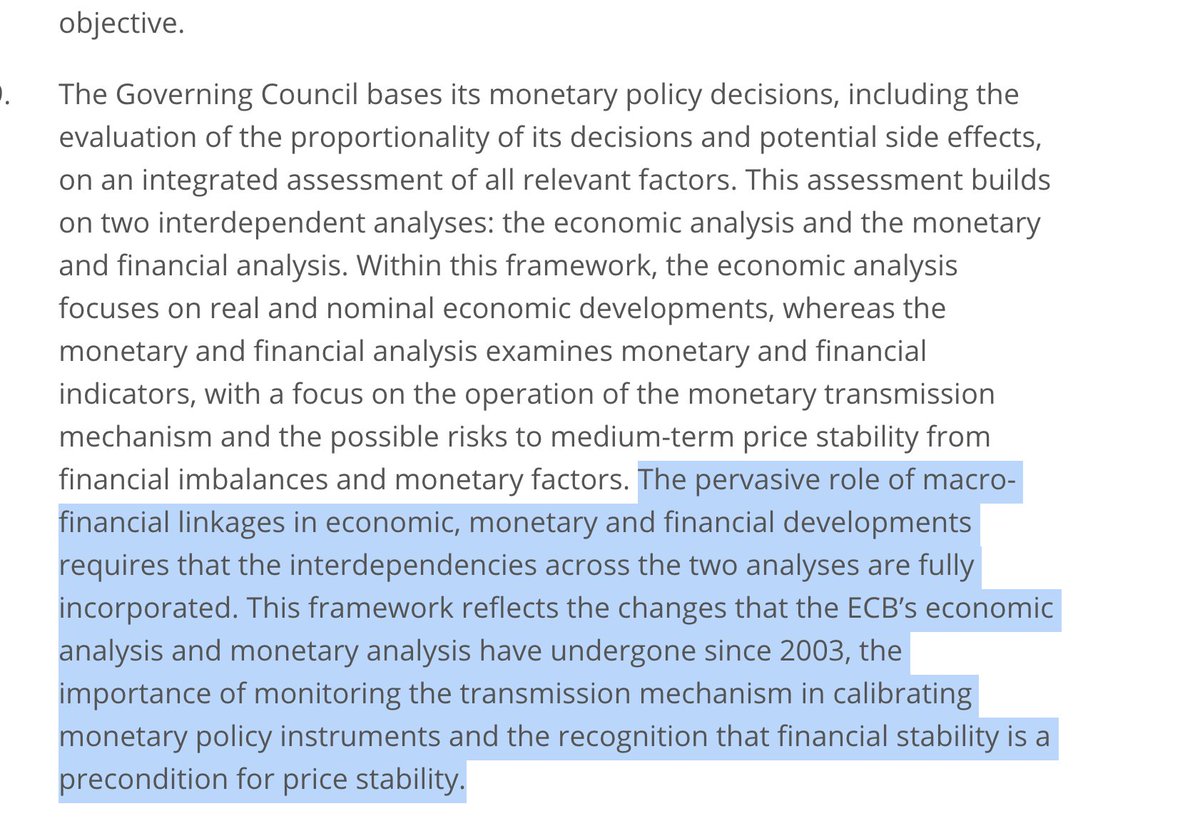
it's shocking that @ecb Strategy Review says nothing about fiscal-monetary interactions, when ECB has bought basically all sovvies issued by Euroarea countries since the pandemic
https://twitter.com/DanielaGabor/status/1355161368064905219
yes @Lagarde mentions macrofinancial linkages, but there is nothing in the text that points to the critical role that sovereign yields play in those linkages 

someone ask @lagarde about the fiscal hawks returning to Eurozone please, and what the ECB plans to do about it
• • •
Missing some Tweet in this thread? You can try to
force a refresh









